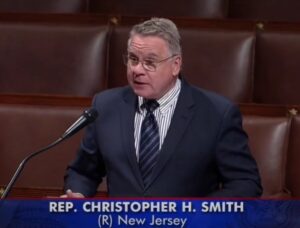Baby Formula Scarcity Prompts Deeper Questions – InsiderNJ
They say all politics is local and when you are scrambling to find baby formula for your hungry infant you’ll knock on any door that you think might be answered. A shortage like this adds a whole new dimension to constituent services in a place like New Jersey that fancies itself as being so affluent and socially progressive yet keeps getting bitten in the ass by a scarcity for basics.
First it was masks, then it was COVID tests and now it’s baby formula. When are we going to own just what a greedy disaster our form of late stage vulture capitalism has turned out to be? We are great at amassing mind-numbing wealth, but as for providing the basics that sustains like, not so much.
According to multiple reports, a Feb 17 product recall of Abbott formula products was set in motion after a Jan. 31 inspection at the company’s Sturgis, Michigan plant. The regulatory probe came after four infants were hospitalized and two died after coming down with bacterial infections.
The Washington Post reported that House Appropriations Committee Chair Rosa L. DeLauro (D-Conn.) had received a 34-page report “from a former Abbott employee who registered a litany of complaints about conditions at the plant with the FDA” back in October 2021, leaving FDA Commissioner Robert Califf scrambling to account for the delay as the shortage became more severe.
“There will be a full investigation of the timeline, and we’ll do everything possible to correct any errors in timing that we had so that we don’t repeat any mistakes that may have been made,” he promised NBC’s Savannah Guthrie.
As it turns out, there’s a lot more to the infant formula scarcity story than just the pictures of empty shelves and the ones walled off by plexiglass and under lock and key at your local Walgreens featured on the news. Consider, that half of the formula that’s purchased in this country goes to supply the 1.7 million infants who rely on the WIC program to survive.
“Even before this national baby formula supply crisis, we got calls from our constituents looking for help

with infant formula because the price before the crisis was so exorbitant,” Assembly Member Britney Timberlake (D-District 34) said during a May 16 interview. “Now, the infant formula shortage is impacting women all over and most babies are reliant on formula at some point and a healthy baby is a fed baby.”
Timberlake credited the Biden White House with moving to address the crisis in the short term by exploring the importation of imported formula that meets the U.S.’s stringent safety standards. The U.S. does not currently import formula.
As the mother of a one-year old and four year old, Timberlake says she is well versed on the importance of parental education on the subject of infant nutrition. The Essex County legislator, who represents one of the state’s poorest districts, was quick to point out that the issue of access to infant nutrition was not just a simple matter of supply and demand, but was informed by the state’s great health and wealth race-based divide.
While the formula scarcity is hitting every zip code, it comes as an additional setback to communities of color, so disproportionately hit by COVID and long standing health care access issues. These are also the places where expectant mothers are most likely not to receive the pre-natal and post-natal care that leads to better health outcomes for the mother and the child.
NJ Spotlight recently reported that the six-month old supply crisis was “growing increasingly worse and more alarming” with Abbott Laboratories, a major supplier, saying it could take “up to 10 weeks to get products back on the shelves after shutting down production following a massive recall.”
The New Jersey non-profit news site confirmed the shortage was “especially challenging to low- and moderate-income parents… enrolled in the state’s supplemental nutrition program for women, infants and children, also known as WIC.”
“Every young mom that comes asking for it is extremely disappointed when we don’t have it. We normally have crates filled with it for them to take. I don’t have a single can in the building right now,” Mike Bruno, executive director of the Human Needs Food Pantry in Montclair told NJ Spotlight.
Dr. Celine Gounder is a physician and epidemiologist as well as the Editor-at-Large for Public Health at Kaiser Health News.
“We’re saying the same disparities play out with respect to access to baby formula as we’ve seen with maternal and child health — Black women are 2.5 times as likely to die from childbirth as white women in the U.S. — and the rest of our health care system,” Dr. Gounder wrote in an email.
“My husband and I had to drive 45 minutes to a suburban hospital to get the kind of mother and infant friendly care that’s expected as the basic standard of care in wealthier, whiter communities,” Timberlake said. It’s in these kinds of settings, she notes, that mothers are also more likely to get the post-natal nutritional counseling they need.
“I have a bill that I introduced earlier this year to require all new mothers to be visited by a lactation consultant before they leave the hospital after childbirth because there can be a stigma to breastfeeding and some women can lack the support to even give it a try,” Timberlake observed. “It’s also important to remember, infant formula remains essential because there are cases where women can’t breast feed due to medical health issues and they must rely on formula. And although, 83 percent of respondents to a survey said they initiated breast feeding, the percentage declined to 50 percent at 6 months and 24 percent at 12 months.”
Timberlake also noted that even among the mothers surveyed who breast fed their infants, more than half their infants also received formula while they were still in the hospital.
Here in New Jersey, according to the New Jersey Department of Health we have around 100,000 infants born in each calendar year. According to the United Way’s ALICE project, which tracks families living below the official poverty level as well as struggling week to week to cover basics, “1.2 million households were already struggling to afford the basics even before the COVID-19 pandemic hit.”
The non-profits analysis continued. “These ALICE and poverty-level families were living one crisis away from financial despair and that crisis is now. While 37 percent of all households in New Jersey do not earn enough to cover basic expenses, systemic racism has led to disproportionate rates of Black households facing financial instability. More than half of Black households — 52 percent — are unable to afford the basics for survival, which is nearly twice the rate among White households in New Jersey.”
New Jersey Congressman Chris Smith, New Jersey’s last remaining Republican, blasted the Biden

response.
“As millions of American families scramble to feed their infants, President Biden has failed to take effective action to resolve this life-or-death crisis and ensure parents have access to this critical source of nutrition,” Smith wrote in a statement.
Smith has cosponsored a bill to direct the Food and Drug Administration (FDA) to agree to an international standard for baby formula with the intent to increase importation and boost domestic supply. “This critical legislation will cut bureaucratic red tape exacerbating this dire shortage and reinforce our domestic supply of infant formula to ensure it is able to withstand future shocks,” Smith added.

May 15, Congressman Frank Pallone, who is chair of the powerful Energy and Commerce Committee committed to have hearings on the formula crisis.
“The infant formula shortages are alarming,” tweeted Pallone. “I’m holding an oversight hearing on May 25 to focus on what’s been done to increase production and supply and what more still needs to be done to ensure that all families have access to safe formula.”
While things were getting harder for families, not just here in New Jersey but across the country, corporate consolidation was accelerating in vital areas like pharmaceuticals and yes, baby formula. Indeed, U.S. tax policy that shifted the tax burden from corporations to American households, helped to promote the kinds of mergers and acquisitions that eliminate sector competition.
Of course the corporate campaign donors that rent Congress don’t see it that way.
“Experts say the formula crisis points to problems beyond conditions at the facility operated by Abbott, maker of Similac and the largest producer of milk formula in the country,” reported the Washington Post. “For years, they have been warning that industry consolidation has left the production of formula — a highly regulated product that is notoriously difficult to manufacture — in the hands of a small number of makers vulnerable to this sort of disruption.”
It was that angle that caught the attention of Senator Cory Booker (D-NJ), who along with his colleagues Sen. Tammy Duckworth (D-IL), and Amy Klobuchar (D-MN), led a group of eight Senators calling on the Department of Agriculture (USDA) to address the “extremely high levels of corporate concentration in the infant formula marketplace following the recent news of infant formula shortages nationwide” according to a Bookler press release.
“The infant formula industry has reached an alarming level of corporate concentration with four companies–Abbott Nutrition, Mead Johnson, Gerber, and Perrigo–controlling nearly 90% of the infant formula market. Abbott Nutrition, the manufacturer of products currently under recall, alone controls around 40% of the infant formula market,” the Senators wrote in a letter to USDA Secretary Vilsack. “This level of concentration has created a fragile system unable to adequately respond to shocks in the supply chain. Unfortunately, this puts our most vulnerable populations at risk, and disproportionately impacts low-income families who rely on programs such as the Special Supplemental Nutrition Program for Women, Infants, and Children (WIC).”
The letter was cosigned by Senators Kirsten Gillibrand (D-NY), Tina Smith (D-MN), Elizabeth Warren (D-MA), Richard Blumenthal (D-CT), and Patrick Leahy (D-VT).
The Senators continued, “The extremely high levels of concentration in the infant formula market creates a serious risk to infant health if there is any disruption to a major manufacturer’s supply. Therefore, this issue merits immediate antitrust review. While federal contracting may have played a role in the consolidation of the infant formula market, corporate food giants shoulder the majority of the responsibility of hyper consolidation across the food system. This is yet another example of how alarming levels of consolidation hurts American families and can no longer be ignored.”
Talk about real time delivery…..
EDITOR’S NOTE:
The Abbott Nutrition baby formula manufacturing facility in Michigan that has been shuttered since February is “likely” to resume operations in two weeks, according to the U.S. Food and Drug Administration. Under fire from parents and politicians, President Joe Biden’s administration on Monday announced an agreement to reopen the largest domestic manufacturing plant of infant formula as well as ease import rules to allow supplies from overseas, amid a nationwide shortage.
(Visited 3 times, 7 visits today)
